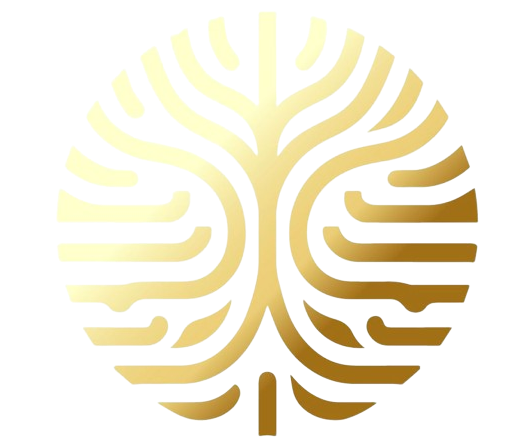Dreams and Plant Medicine: A psychospiritual Exploration
By Troy Valencia
At Root and Wisdom, we honor Iboga, a sacred African plant known for its powerful ability to open the door to the unconscious, much like the realm of dreams. Through Jungian dreamwork, we understand that the unconscious communicates in symbols and metaphors, offering us deep insights into our true selves. Plant medicine, such as Iboga, provides another way to access this symbolic language, bridging the gap between conscious thought and the deeper, often hidden, aspects of the psyche.
The Overlap of Dreams and Plant Medicine
The overlap between dreaming and Iboga-induced visionary states is profound. During sleep, the brain cycles through various stages, ultimately leading to REM sleep, where dreams emerge. Similarly, during an Iboga Africa retreat or plant medicine experience, the brain’s activity mirrors aspects of dream states—eliciting emotional responses, vivid mental imagery, and altered perceptions of self (Bulkeley, 2016). These states serve as a bridge to the unconscious, a realm where our deepest fears, desires, and potential for transformation reside.
Recent research highlights the unique brain activity associated with Iboga, showing that it induces a wakefulness state with characteristics akin to REM sleep. In a study analyzing the effects of Ibogaine, the active alkaloid in Iboga, on the brain of rats, researchers found that Ibogaine promotes a REM-like brain state during wakefulness, characterized by distinct gamma oscillations (González et al., 2018). This oneirogenic (dream-like) state produced by Ibogaine aligns with the symbolic, visionary experiences reported by those who have worked with this sacred plant medicine. Such states may aid in the antiaddictive properties of Iboga, enhancing neural plasticity and memory reconsolidation, similar to the functions of natural REM sleep (González et al., 2018).
Jungian Dreamwork and Plant Medicine
In both dreams and Iboga experiences, we are presented with a unique opportunity to communicate directly with the unconscious. Carl Jung, a pioneer in the study of the unconscious mind, emphasized that dreams are a direct expression of our internal world. Jungian dreamwork, a therapeutic approach to engaging with dreams, involves interpreting and integrating the symbolic messages contained within these experiences.
Robert Johnson’s four-step approach to dreamwork—recall, association, interpretation, and ritual—can also be applied to the imagery presented in Iboga visions(Johnson, 1986). The first step involves recalling the symbols or visions experienced, which might include anything from personal symbols to universal archetypes. Next, association involves connecting these symbols to personal life events or inner dynamics, recognizing how these images relate to one’s current psychological state. Interpretation digs deeper to uncover the meaning behind the visions, whether they point toward healing, unresolved trauma, or personal growth (Johnson, 1986).
Finally, the ritual aspect grounds these insights into tangible actions, integrating the messages from the unconscious into daily life. This step is particularly powerful in Iboga’s work, as it transforms abstract symbols into concrete steps toward healing and self-understanding. By embracing both the dream and plant medicine states as a unified process, individuals can navigate their inner worlds with greater clarity and purpose.
Root and Wisdom: A Sacred Container for Inner Exploration
We provide a sacred and supportive environment for this deep psychospiritual work at Root and Wisdom. Our Iboga retreats are designed to guide participants in decoding the messages of their visions, using the principles of dreamwork as a foundation. This approach honors the wisdom of the plant and the wisdom within each participant, empowering them to engage directly with their unconscious in a safe and transformative manner. Additionally, it allows you to answer the question of “What is Iboga?” for yourself.
Our experienced facilitators guide participants through the Iboga experience, helping them interpret the imagery and insights that arise during their journey. Recent findings on Ibogaine’s ability to induce REM-like brain states highlight the profound capacity of this plant to bridge the conscious and unconscious realms. When the symbolic nature of dreams and plant medicine visions converge, a unique pathway to self-understanding and liberation from mental constraints unfolds. This work transcends the therapeutic—it becomes a spiritual exploration, reconnecting individuals with their true selves.
Call to Action
If you are curious about how Iboga can deepen your journey into the unconscious and help you harness the power of dreams and visionary states, consider joining us at our next Iboga retreat in Costa Rica or the Caribbean. Let us guide you through this profound process, where the unconscious’s symbolic language meets plant medicine’s transformative power. Reach out today to speak with one of our team members and discover if Iboga is the right path for your transformative journey.
References
Bulkeley, K. (2016). Big dreams: The science of dreaming and the origins of religion. Oxford University Press.
González, J., Prieto-Godino, L. L., Palacios, S., Villar, D., Quesada, R., Weiss, T., … & Urgellés, D. (2018). Ibogaine acute administration induced a biphasic effect on waking EEG in rats, promoting wakefulness and enhancing REM-like expressions. Scientific Reports, 8(1), 1-12.
Johnson, R. A. (1986). Inner work: Using dreams and active imagination for personal growth. Harper & Row.
